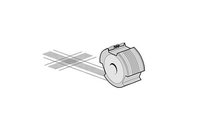Analysis of the current status and necessity of testing automotive grade chips
Date:2024-05-07 15:15:52 Views:1691
As a product that integrates advanced mechanical and electronic technology, the safety, stability, and reliability of automobiles are undoubtedly the core elements. Car grade chips, as the "heart" of cars, their performance directly affects the overall performance of the car. Therefore, conducting comprehensive and rigorous testing of automotive grade chips is not only a necessary means to ensure car quality, but also a key link in ensuring driving safety.
In the field of automotive component inspection, its complexity and cost are often astonishing. Especially in the design of critical components and systems for automotive safety, every link in the supply chain requires detailed testing, which undoubtedly increases the time and cost of testing. Although cost reduction is a common pursuit in the industry, the automotive industry has shown particularly caution and rigor in this regard. Faced with this challenge, the industry has proposed two completely different coping strategies.
_20240507151402_811.png)
One strategy is to implement system level testing. Although this method is costly, it allows for testing in the context of actual systems, allowing for a more comprehensive evaluation of chip performance and reliability. There is still controversy over whether system level testing will increase overall costs. Although system level testing may reduce the number of tests in certain stages, its investment in testing equipment and technology is also significant.
Another strategy is to finely manage the testing process from a cost perspective. Through in-depth analysis, determine which tests are necessary and which can be optimized, in order to achieve the goal of reducing costs.
It is worth noting that not all errors are predictable, and not all errors have the same impact. The ISO26262 standard provides a clear classification of system failures, where system failures can be detected, predicted, and repaired, while random failures are more uncertain.
To ensure the reliability and safety of automotive systems, the entire automotive supply chain must work together to create a safety culture. Although we cannot pursue 100% reliability, reliability is always the foundation. Meanwhile, with the continuous advancement of technology, the automotive supply chain relationships have become increasingly complex. Traditional semiconductor suppliers not only need to have deeper communication with OEM manufacturers, but may also face competitive pressure with Tier1 or OEMs. This change is a challenge for car manufacturers as they need to obtain key technologies and information more efficiently.
To address this challenge, many car manufacturers have begun to break away from traditional value chain models and establish direct connections with original technology suppliers. The benefit of doing so is that manufacturers can ensure that the product's lifecycle can meet long-term needs, such as continuous supply for more than 10 years.
The importance of automotive grade chip testing is self-evident. It is not only related to the quality and safety of automobiles, but also a key link in verifying the feasibility of new technologies and processes. Through these tests, we can evaluate the performance and reliability of chips under various conditions, identify and solve problems, and ensure that products comply with relevant standards and regulatory requirements. Therefore, for the research and production of automotive chips, these tests are indispensable and important links.




 Weixin Service
Weixin Service

 DouYin
DouYin
 KuaiShou
KuaiShou





















